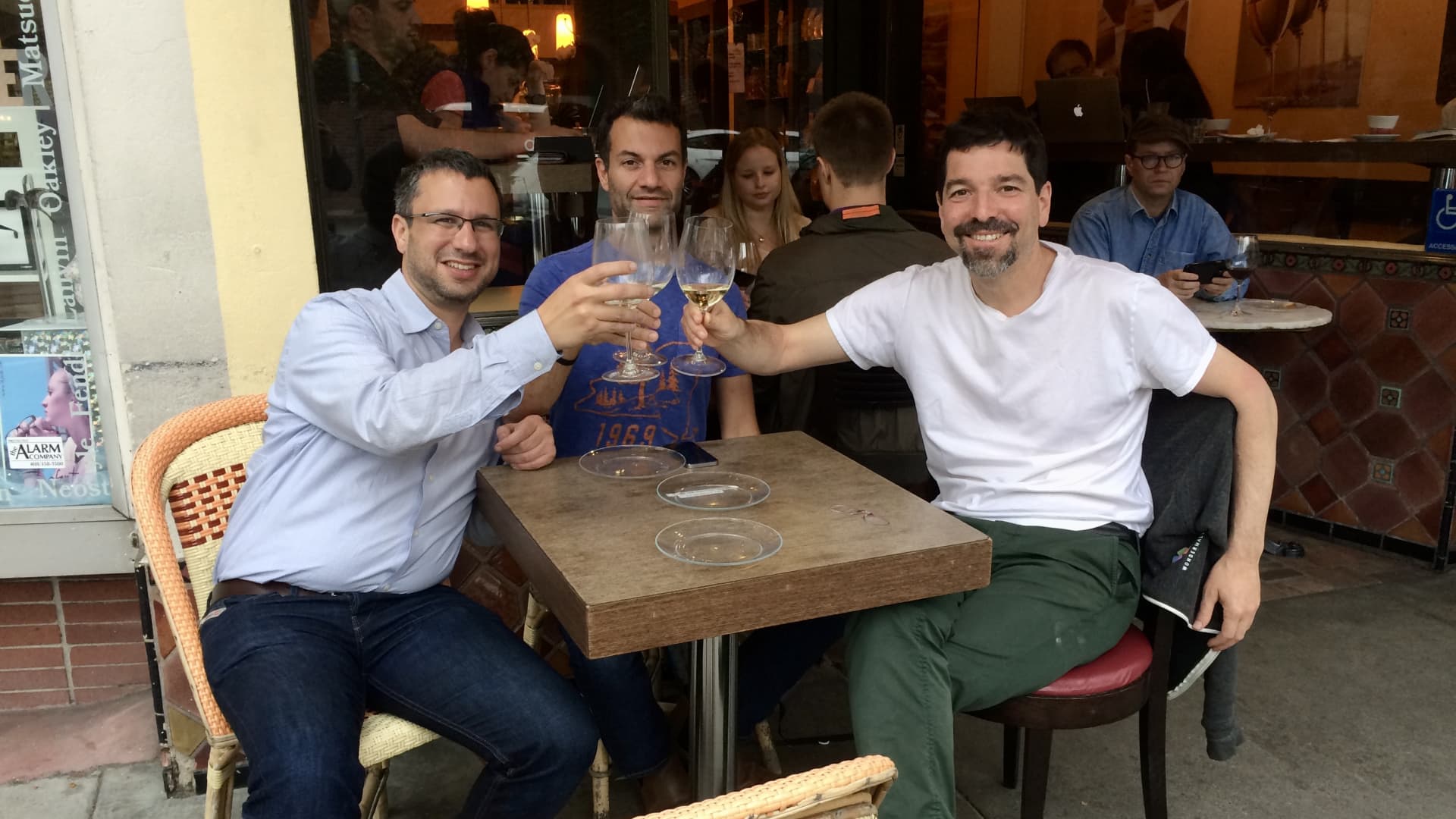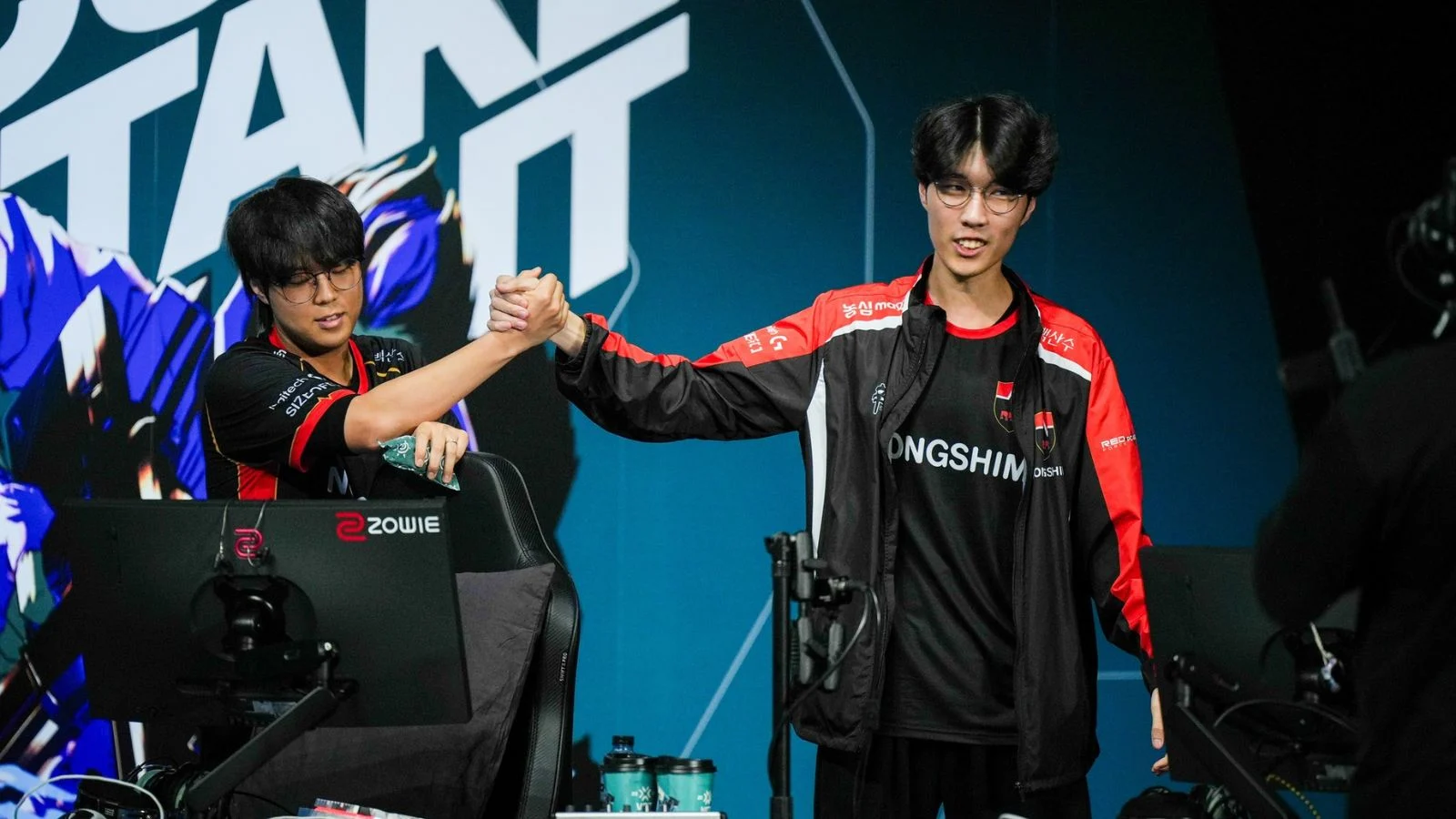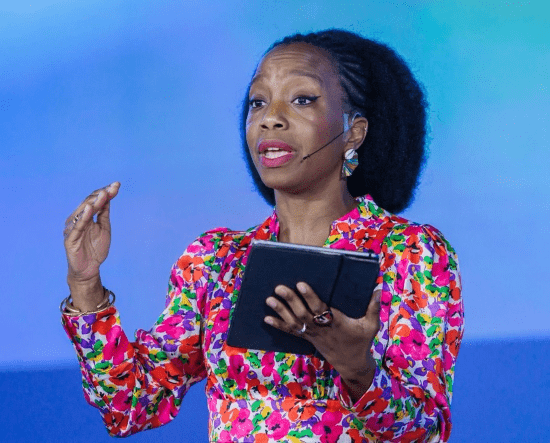Copyright CNBC

It wasn't a traditional pitch meeting. There were no slides, no product demo. There wasn't even a clear explanation of what the founders were trying to build. But for investor Oren Zeev's decision-making process, none of that was necessary. "I just liked them, I just wanted to be close to them," said Zeev. "So I wrote a small check – a 'relationship investment,' I called it." The year was 2013, and Zeev, a former general partner with the venture capital arm of Apax Partners (which now operates primarily as a private equity firm), was working as a de facto angel investor. He didn't like to call himself an angel investor because he tended to write checks that were larger than those doled out by other wealthy individuals who put their own capital into startups at the time. But he made an exception for Ariel Cohen and Ilan Twig. Shortly after an informal pitch meeting with two founders, Zeev decided to invest $50,000 in their startup – despite the yet-to-be-defined company not even having a product Zeev could fully understand. Cohen and Twig's nebulous idea turned into StreamOnce, an early enterprise collaboration player that got snapped up by a larger enterprise collaboration player called Jive Software not long after its inception. It was a minor financial success – both for the founders and for Zeev. But it helped sow the seeds for another, more monumental venture for all three: A business travel platform called TripActions which Cohen and Twig founded in 2015, and which changed its name to Navan in early 2023. Navan, which ranked No. 39 on this year's CNBC Disruptor 50 list, priced its initial public offering on Wednesday night and begins trading Thursday on the Nasdaq under the ticker symbol "NAVN." The corporate travel and expense software company raised $923 million, pricing the deal at the midpoint of its IPO range, $25 per share, and valuing the company at over $6 billion. Just like with StreamOnce, Zeev's involvement with Navan started with an informal meeting, a quick decision, and an early check. But unlike his prior investment in the duo's first venture, Zeev has led Navan's seed and A rounds, plus participated in all of the company's subsequent equity rounds. Upon its IPO, that investment will turn into a more than $1 billion stake in Navan, where Zeev will remain on the board. "It's a first for me," says Zeev, referring to the dollar amount of his return on a single startup. New blueprint for investing success The Navan exit, while uniquely gargantuan, isn't a one-off for Zeev. It's more of a blueprint. The investor, who evolved from a traditional venture capitalist to an angel investor (albeit on a larger-than-usual scale) to a so-called solo GP – an investor who raises money from limited partners but acts alone – has spent years perfecting his lone wolf approach to venture capital, helping to define a new category of investor, which may end up being particularly well-suited to today's environment. "The advantage you have as a solo GP in this fast-moving market is you can make a decision at the meeting," said Kyle Stanford, director of U.S. venture research at financial data provider Pitchbook. Zeev's track record as a solo GP has been written about in the past. But now, on the eve of his biggest success to date, it's worth revisiting how and why the self-proclaimed "One Man Venture Capitalist" has operated alone. Born and raised in the Israeli coastal city of Haifa in 1964, Zeev studied electrical engineering at the Technion university, located in his hometown. After working for an IBM chip design group – also in Israel – he then went on to receive his MBA in France. He came back to Israel in 1994, just as the local venture capital industry was starting up. Zeev wanted in. He ended up at Apax Partners as the London-based firm was entering Israel to become an on-the-ground investor in its increasingly promising startup ecosystem. "I don't think I was a good investor [back then]," Zeev said. "But I survived." Lucky for him, it was the mid-90s, and the technology sector was booming. While Zeev calls any of his wins from that early era at Apax "irrelevant" in light of the successes he has had later in his career on his own, the tailwinds at the time helped him notch a few exits (one example: he led an investment in a Bluetooth chip company called Butterfly, which was acquired by Texas Instruments for $50 million in 1999). His time at Apax was fruitful for another reason: It helped launch the next phase of his career. By the early 2000s, following the collapse of the dot-com bubble, Apax asked Zeev to relocate to Silicon Valley, where he'd long wanted to end up. By then, it was 2002, and unlike the boomtime era in which Zeev started out in venture, no one was doing deals. "In hindsight, it was very good timing because it was after the bubble burst and everyone was really shell-shocked," Zeev said. "Nobody was doing anything and it gave me an opportunity." An early venture exit coup with Audible Zeev's very first deal after settling in Silicon Valley was buying up 40% of audiobook pioneer Audible. The startup had gone public in 1999 despite the fact that it was still way too early for digital audiobook distribution on a large scale, but had gotten delisted after the tech crash. Newly private, it had worked hard to get its strategy on more solid footing – the technology available too had evolved – but had failed to find a financial lifeline. "It was pretty clear they had turned the corner but everyone had taken them for dead for so long," Zeev said. "My advantage was that I viewed it with fresh eyes. And my other advantage was that nobody was doing deals, because if I'd had any kind of competition, I would have lost." In 2003, Zeev convinced Apax to invest roughly $10 million in Audible, eventually turning that $10 million into $130 million, a coup at a time when barely any exits were taking place. (Amazon ultimately acquired Audible in 2008.) Zeev stayed at Apax for a few more years, and had a few more exits along the way, but eventually parted ways in 2007. He had done well for himself but says he had "lost the joy" of investing. "In hindsight, I know that what wore me out was all of the partnership dynamics and things like that, not necessarily investing," he said. He decided to take some time off and enjoy his financial independence. He tried to learn golf but it wasn't his thing. He considered pursuing a PhD but decided against it. He taught high school math and took some courses at Stanford University. Nothing really scratched the itch. Before long, he was back to investing, this time tapping into his own pool of money. By then, he had amassed a sizable network, especially among Israeli entrepreneurs. He wrote early checks to Tipalti, a fintech startup he also helped found, the home remodeling marketplace Houzz, and Chegg , the once-darling of the edtech sector which went public at a valuation of $1.1 billion in 2013 (but whose market cap is now under $150 million). Technically, Zeev was operating as an angel investor, as he was investing his own money on his own. But from the get-go, he did things a bit differently. "I led every single deal, and every single deal was a seven-figure-deal," Zeev said. The meeting with Peter Thiel that changed Zeev's lone wolf method A few years in, Zeev had had a few quick exits, mainly M&A deals, and he was enjoying the freedom of operating solo. But in 2015, a meeting with Peter Thiel caused him to change his modus operandi, at least in one critical way. "I came out of that meeting with a fund I did not know I was raising," Zeev said. Thiel had convinced Zeev to try taking outside funding, but also to continue operating as a solo investor. That first fund was $20 million – $18 million from Thiel and $2 million of Zeev's money. (He has been a limited partner in each of the subsequent nine funds he has raised over the last decade.) It was an experiment for both of them. For Zeev, who had by then created a more formal entity for his investments – Zeev Ventures – it was an opportunity to test whether he could really continue to operate as a solo investor even with an outside investor. "The answer was a clear yes," he now says. Zeev discovered that he could outsource back office requirements like quarterly reports, capital calls, and handling distributions, to a fractional chief financial officer. "I discovered that it's very easy to outsource," Zeev said. To this day, Zeev doesn't have anyone on his payroll, not even a secretary. He doesn't even have an office – he takes almost all of his meetings (including the one where he decided to invest in Navan) from a coffeeshop in downtown Palo Alto called Cafe Venetia. "Most GPs with Oren's success have a team supporting them," says Ben Choi, managing partner with Next Legacy Partners. "For an LP, that also means that there's a team between us – other partners, junior professionals, investor relations." Zeev has chosen to do things a bit differently with his LPs in other ways. While he charges a traditional management fee (in addition to the typical carried interest VCs earn from their fund's performance), he doesn't pocket any of the money from those fees. "I reinvest 100% of the management fees into the fund," said Zeev, a practice he says helps him achieve "radical alignment" with his LPs. For Choi, whose firm came on board as an investor in Zeev Ventures about five years ago, that kind of focus on performance – coupled with clarity of communication – has kept him a happy LP. He says Zeev has always been extremely responsive and dedicated, no small feat with $2.5 billion assets under management and an active portfolio of around 30 companies. "One of the things that can be challenging for a founder when you work with funds is understanding who is the decision maker," said Rami Lachter, co-founder and CEO of a Zeev Ventures portfolio company called Flare, an AI--powered software platform for the legal sector. "With Oren, he's the decision maker, he's very straightforward, and he tells you what he thinks. So it's super productive," Lachter added. Zeev is known for his decisive nature and blunt communication style, saying he makes most investment decisions within 24 hours. But that doesn't mean all his companies follow a fast, or linear, path to an exit. When the Covid pandemic hit in early 2020, Navan went from growth mode to a complete standstill. What's worse, there was no definitive end in sight. The company had some tough decisions to make. Shortly after the pandemic effectively shut down business travel, Navan laid off around 300 employees, about a quarter of its workforce at the time. Zeev says CEO Cohen and the rest of the team made the right decisions at the time, however hard. In addition to the layoffs, they diverted resources to a product that was more focused on corporate expenses versus travel, changing the product roadmap. They also secured significant debt financing in order to stay afloat and fund the transition. (This transition is why, later in 2023, they rebranded from TripActions to Navan, an attempt to convey the move from travel to a broader category of corporate tools.) "I was very supportive of all of these decisions, but it was really Ariel [Navan's CEO] who navigated the ship." Throughout his years of investing, Zeev says he's developed an effective gut feeling when it comes to meeting founders. "I have to like the founders, not just as people but also like them as founders and believe they can build something big," Zeev said. In Navan's case, because he had gotten to know both co-founders via his small check in their earlier company, he knew he already liked them and that he believed in their ability to build something. He also felt that the area they were trying to innovate in, corporate travel tools, was ripe for disruption. "The existing travel solutions back then were crap, and all the employees hated them and were trying to go around them," he said. But he didn't know Navan would turn into a multi-billion-dollar company, nor that it would be able to weather a storm like a global pandemic. "I couldn't know at that point, and I don't think they could know at that point, that Ariel would grow to be what I consider today to be a world-class leader," Zeev said. Navan, and Zeev, waited patiently as the company steered itself back to growth. While rumors of an IPO had been circling for years, Covid and then unfavorable market conditions forced them to delay plans. (Zeev says Navan never formally kicked off an IPO process in the past, so "it's not as if we tried and failed.") While the IPO represents a significant liquidity event for investors, founders, and employees, it doesn't mean Navan's future success in its increasingly crowded sector is achieved. The company has shown impressive growth: According to its S-1, revenue grew 33% year-over-year from $420 million to $537 million from fiscal 2024 to fiscal 2025. But Navan is not yet profitable. And, again, it's not the only company that has sought to disrupt the business travel and expense tools sector. Then again, its public offering comes at a time when not even a government shutdown has been able to slow renewed IPO activity. All of which bodes well for Zeev, who clearly has big plans for the future. While Zeev said he is not selling his shares as part of the initial public offering and will remain on Navan's board, he noted, "It's quite rare for an early-stage investor to reach proceeds of over $1 billion. But I actually don't think it will remain unique for a long time as I have several companies I expect to follow in the next few years." —By Michal Lev-Ram, CNBC Contributor Sign up for our weekly, original newsletter that goes beyond the annual Disruptor 50 list, offering a closer look at list-making companies and their innovative founders.



